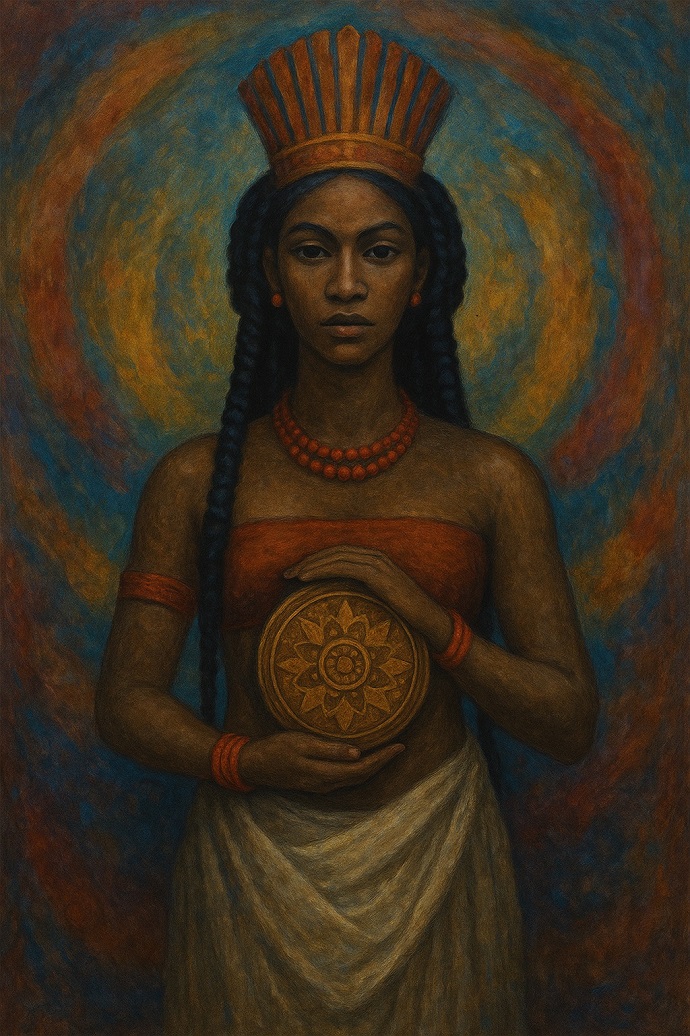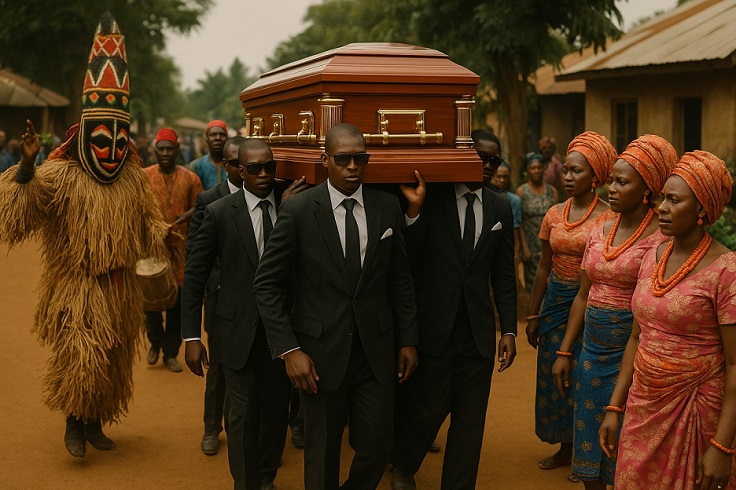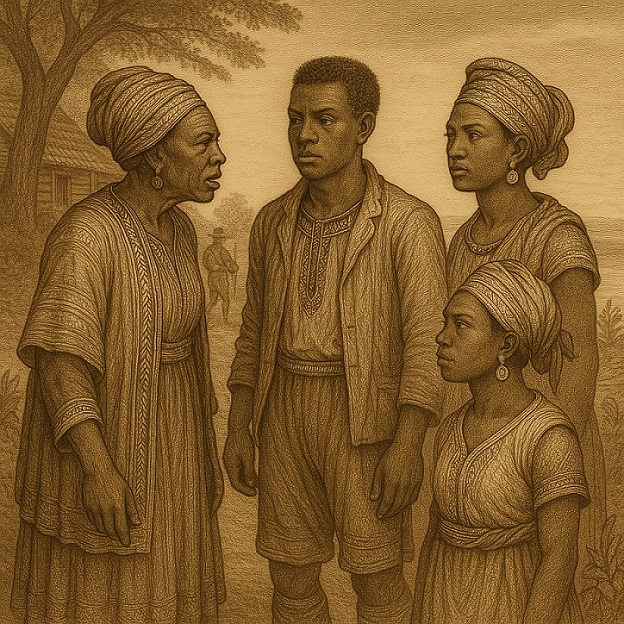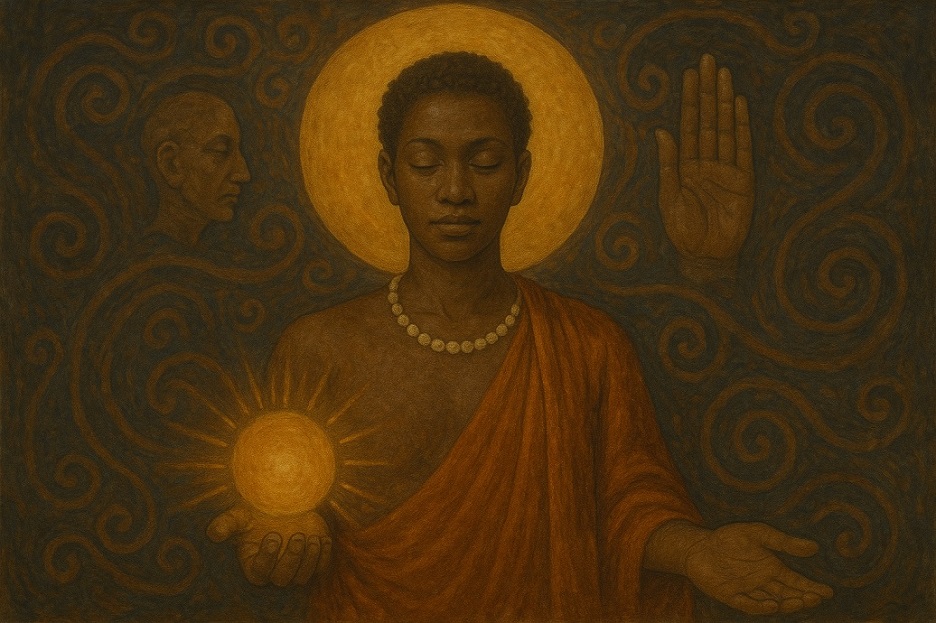
Why Many Igbo People Still Fear Ogbanje (Spirit Children)
Bongo Music Africa
Author
The Ogbanje (Spirit-Child) Belief in Igbo Culture
Ogbanje are traditionally understood in Igbo (southeastern Nigerian) cosmology as spirits that repeatedly reincarnate in a single family, often causing a string of infant deaths. In the old belief system (ọdịnala), an ọgbanje is a spirit-child that returns to torment its relatives by dying in infancy and rebirth. Researchers describe ogbanje/abiku as a “culture-bound syndrome” of “spiritual children repeatedly born to die”, bound by a supernatural oath to live only a short time on earth. Oral tradition holds that unborn ogbanje spirits form secret leagues (ndi-otu) and enter pacts with fate. The child’s lifespan is fixed by a buried charm (iyi-uwa stone), and unless this stone is found and destroyed, the child will die “according to plan”.
Reincarnation and spirits: Ogbanje are literally “reincarnating evil spirits” in Igbo lore. For example, Achebe’s novel Things Fall Apart recounts a medicine man digging up the iyi-uwa of Ekwefi’s daughter Ezinma – a charm that bound the child’s spirit – so that “she would never become sick again”. In similar traditional narratives, if the buried iyi-uwa (hidden stone) is unearthed, it is believed to sever the spirit’s hold, allowing the child to live on.
Rituals and marks: To protect surviving children, families might use tribal markings. In southern Nigeria, women would scar or mark an ogbanje child’s body (or face) so the spirit’s unseen companions could not recognize and reclaim it. (A BBC report notes that both Igbos and Yorubas of old thought ogbanje/abiku children belonged to a “coven of demons,” and marking the child was believed to confuse its spirit-mates.) Traditional healers (dibia) were consulted via divination (afa) to identify any hidden iyi-uwa or spiritual cause.
Myths and interpretation: Classical Igbo myths describe ogbanje as demonic tricksters. The poet John Pepper Clark refers to a “league” of ogbanje spirits moving together, and Chinwe Achebe (daughter of Chinua Achebe) explains that ogbanje can be “female” (linked to water spirits like Nne Mmili) or “male” (linked to earth spirits like Onabuwa), each with their own rituals. Generally, ogbanje were seen as malevolent forces that brought repeated misfortune. (Notably, in many accounts the ogbanje is contrasted with a benign “emu-anarịrị,” a soul that reincarnates only with the family’s blessing.)
Psychological and Medical Interpretations
Modern researchers argue that the ogbanje belief arose as a way to explain high infant mortality and illness. Recurrent newborn deaths in a family – often due to genetic or health factors – were interpreted as a single spirit coming back. For example, studies in Nigeria have shown that many children once thought to be “malevolent ogbanje” were suffering from sickle-cell disease or other medical conditions. One pioneering analysis found that 70% of children labeled malevolent ogbanje had sickle-cell anemia. These children’s symptoms (chronic pain, anemia, early death) matched the traditional descriptions of ogbanje. In another survey of living ogbanje children, 35.7% were found to have sickle-cell anemia and many others had no congenital defect. In short, what was once seen as a curse often has a biological cause.
Genetic and health factors: Beyond sickle cell, families often attribute any unusual trait to ogbanje. In the Abakaliki study, for instance, children with behavior disorders (hyperactivity, autism), mild heart conditions, or even normal health were still labeled ogbanje. Such labeling can worsen outcomes: the health survey noted that many ogbanje-designated children “may have preventable or manageable illness”, but parents might forego medical care due to belief. Today, doctors emphasize that things like sickle-cell anemia or congenital conditions – not spirits – cause the repeated deaths that gave rise to the myth.
Grief and coping: Culturally, the ogbanje concept helped families cope with repeated tragedies. When mothers lost baby after baby, the idea of a spirit-child provided an explanation. One BBC report notes that the pattern of mothers losing several children in succession (now often linked to genetic anemia) was long understood as the same spirit being reborn to torment the parents. In psychological terms, the fear of ogbanje remains a grief response: it gives a name to terrible loss. (For example, the Igbo word ilo uwa literally means “to come back to the world,” reflecting an ancient belief in recurring souls.)
Cultural names and expectations: Remarkably, the belief sometimes influences naming and expectations. Families of ogbanje children often chose names with meanings related to death or suffering (e.g. Okechukwu “death of God”). Nzewi’s study noted that many families even had “death-related names” when children were repeatedly lost. These linguistic clues show how deeply the phenomenon was woven into the social fabric.
Contemporary Beliefs and Practices
Ogbanje ideas continue to influence many modern Igbo communities, though in changing ways. Surveys indicate that belief in ogbanje remains common among rural Igbo families. In one community health study, 64.8% of mothers said they believed in ogbanje, and 24.2% had once had an ogbanje child in their family. (Most respondents were Catholic, showing that traditional views coexist with Christianity.) Because of this, many families still turn to traditional or religious remedies when they suspect an ogbanje is involved.
- Seeking help: In practice, mothers often prefer spiritual or herbal solutions over hospitals. The Ebonyi State survey found that almost no one went to a hospital alone for an ogbanje issue (only 3.3% did); instead, roughly 37% went to a church/prayer house alone and 37% to a traditional healer alone. Health workers observed that “respondents were most likely to seek help from churches and traditional healers than from a hospital” in ogbanje. Another study noted that modern Igbo mothers “may no longer patronize native doctors” (with voodoo rituals), but often use herbalists or churches to address an ogbanje problem. In short, faith healing and ancestral rites remain the first line of defense for many, even today.
- Rural vs. urban: Ogbanje beliefs are strongest in rural areas and among the elderly, but they have not vanished entirely in cities or among educated people. Western education, modern medicine, and Christianity have eroded some traditional views over time, as researchers note. Nevertheless, many urban Igbos still privately hold the beliefs or reinterpret them. It is common now for churches to recast an ogbanje case as demon-possession, praying for deliverance. At the same time, families may still quietly bury an iyi-uwa or perform ritual protections. Some anthropologists point out a “cultural diffusion” effect: Christian or Muslim faiths have had “massive” impact on these beliefs, but not completely eliminated them. (As one Igbo blogger put it, foreign religions often call ogbanje “demon-possessed,” but this ignores older understandings.)
- Media and awareness: Today’s Igbo popular culture still references ogbanje. It appears in literature, film, and folklore. For example, prize-winning author Akwaeke Emezi – who is Igbo – wrote about being an ogbanje spirit in her memoir and novel Freshwater. Such narratives keep the idea alive in new forms. Public health experts argue that ongoing education is needed; one study explicitly recommends community awareness campaigns to “dissipate the fear” of ogbanje, by showing that affected children often have treatable illnesses.
Case Studies and Narratives
Modern Igbo individuals and communities continue to share stories that echo the old ogbanje myth. Some are formal interviews with elders; others are literary or personal accounts.
- Traditional leaders: Nigerian news outlets have quoted Igbo chiefs who emphatically endorse reincarnation beliefs. In one report, an Imo State king (Eze Matthew Oweni) described how his newborn grandson bore the exact birthmarks of his late mother. He exclaimed “Mama, are you back?” and stated that “the story of reincarnation is real in Igbo land”. An Enugu monarch (Igwe Wilfred Ekere) likewise said “reincarnation is real… our great grandfathers knew about reincarnation… they called it ‘ilo uwa’ (returning to the world anew)”. These personal testimonies by respected elders show that the ogbanje concept still carries weight in communal memory.
- Personal accounts: Contemporary Igbo writers also depict ogbanje. Akwaeke Emezi, an Igbo-born novelist, has publicly defined the ogbanje as “a malevolent trickster” spirit inhabiting a child, whose goal is “to torment the human mother by dying unexpectedly only to return in the next child”. In Emezi’s novel Freshwater, for example, the protagonist experiences multiple ogbanje personalities. While fictional, such stories draw on real cultural notions and influence how young people understand the myth.
- Cultural narratives: The ogbanje motif persists in folklore and art. Chinua Achebe’s Things Fall Apart famously portrays Ezinma as an ogbanje child; the villagers uncover her iyi-uwa charm to save her. (A similar spirit-child concept, abiku, is common in Yoruba lore as well.) Songs, poems and local proverbs still refer to ogbanje or “wandering souls.” These case narratives—whether in media interviews or creative works—keep the legend alive.
The ogbanje belief blends deep spirituality with mystery. In this modern Igbo artwork (Mbonu Emerem’s “Ogbanje – The Spirit Child #1”, 1989), the child is portrayed in swirling, abstract forms. The rich colors and dream-like figure convey an ethereal, otherworldly presence. This visual representation captures how an ogbanje child is imagined: neither fully human nor entirely spirit, surrounded by symbolism.
Fear of the ogbanje persists because it addresses powerful human concerns. Even though science can explain many cases (e.g. sickle-cell anemia), the traditional belief provides an explanation for otherwise inexplicable loss or misfortune. As one Igbo leader put it, “reincarnation is real” in the ancestral worldview. Public health experts therefore stress education and child-care improvements: Nigerian researchers explicitly recommend awareness campaigns to show that ogbanje children usually have “preventable or manageable illness,” which can break the cycle of fear. Nonetheless, the ogbanje myth endures in family stories and popular culture, blending ancient custom with modern reality. In the end, it survives because it gives meaning to tragedy and connects the living with their ancestors through mystery and faith.




